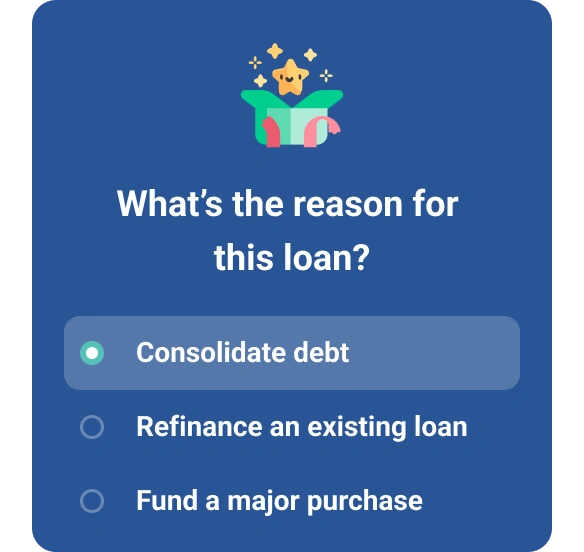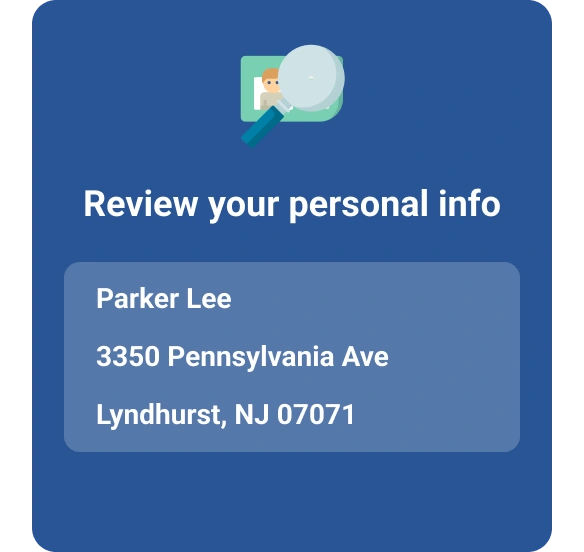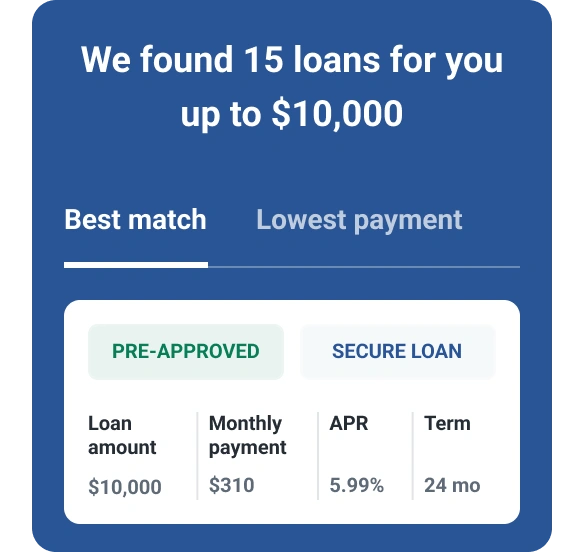What Credit Score Is Needed for a Personal Loan?
Quick Answer
You generally need a credit score of 580 or higher to qualify for a personal loan. And you'll typically need a score in the 700s to qualify for favorable terms. That said, there's no universal minimum credit score required to get approved for a personal loan.

Personal loans are accessible to borrowers across the credit spectrum, so it's possible to get approved for one even if you have bad credit. While there's no minimum credit score for personal loans, lenders that offer favorable terms, including low interest rates and few fees, generally require fair credit or better—meaning a FICO® ScoreΘ of 580 and above.
How Does Your Credit Score Impact Your Personal Loan Application?
When you apply for a personal loan, the lender will evaluate your creditworthiness to determine how likely you are to repay the debt. Your credit score is a crucial indicator of your creditworthiness, and if your score needs some improvement, you pose more of a risk of default compared to someone with a high credit score.
Here are just a handful of ways your credit score can impact your personal loan application:
- Eligibility: Most lenders have a minimum credit score requirement you'll need to meet to get approved. If your score falls below this threshold, you may still qualify if you can add a creditworthy cosigner to your application. If not, the lender may simply decline your request.
- Interest rate: Personal loan lenders use risk-based pricing to determine loan interest rates. If you have a low credit score, the lender may charge you a higher interest rate to compensate for that risk. A higher credit score, on the other hand, will typically result in a lower rate because you represent less of a risk.
- Fees: Some lenders charge an origination fee that's deducted from your loan amount. With good credit, you're more likely to qualify for a loan with a lender that doesn't charge this upfront fee. Among lenders that do charge them, the fee may be dependent on your creditworthiness.
- Loan amount: If you have a lower credit score, you may not be eligible for higher loan amounts due to the risk of defaulting on more debt.
- Repayment term: If your credit score is relatively low, you may only qualify for loans with shorter repayment terms.
Additional Factors That Affect Personal Loan Eligibility
While your credit score helps lenders determine your reliability, it doesn't tell the full story of how you manage your finances. As such, lenders will also typically review the following:
- Credit history: Your credit score gives lenders a snapshot of your overall credit health, but lenders will also review one or more of your credit reports to understand the underlying factors. If you have a major negative item on your credit reports, such as a bankruptcy, foreclosure or loan default, it could impact your eligibility even if you've made efforts to improve your credit.
- Income: Your ability to repay debt primarily depends on whether you earn an income. In some cases, lenders may set a minimum income requirement to get approved. Depending on the situation, you may need to provide proof of income in the form of recent pay stubs or bank statements.
- Debt-to-income ratio: With your income and credit report, lenders will calculate your debt-to-income ratio (DTI) to see how much of your gross monthly income goes toward debt payments. If you have a high DTI, you may be charged a higher interest rate or even be ineligible for a loan.
- Collateral: Most personal loans are unsecured, but if you have poor credit or you want to qualify for a lower rate, you may need to put up collateral for a secured personal loan. Lenders will consider the value of your collateral—for example, cash in a savings account, a vehicle or an investment portfolio—to determine whether it's sufficient to secure the debt.
A lender might also ask for evidence of savings or other sources of cash you could tap as needed to cover your loan payments.
Learn more: What Are the Different Credit Scoring Ranges?
How to Get a Personal Loan With Bad Credit
If your FICO® Score is in the poor range, or even the lower end of the fair range, you may have challenges getting approved for a personal loan. But there are borrowing options available to many borrowers with less-than-ideal credit:
- Online lenders: Some online lenders specialize in working with borrowers who have poor credit, by requiring either a low minimum credit score or no minimum at all. Just keep in mind that interest rates can be up to 36% or higher in some cases.
- Credit unions: Some credit unions offer what's called a payday alternative loan (PAL) that comes with much more favorable terms than similar short-term loan options. Depending on the type of PAL offered, you may be able to borrow up to $2,000, which you can repay over one to 12 months. Keep in mind, though, that eligibility requirements vary by credit union and loan type.
- Cash advance app: Also known as paycheck advance apps, these services offer short-term loans, which you'll typically repay within a couple of weeks. That said, some apps require a monthly subscription to get access to advances or charge fees to get access to the cash sooner—both of which can result in incredibly high annual percentage rates (APRs).
As you research your options, it's important to steer clear of expensive short-term loans, including:
- Payday loans: Payday loans and other "no credit check" loans promise cash in a hurry, but they typically require you to repay the debt within just a couple of weeks, often with APRs that equal 400% or higher.
- Auto title loans: Car title loans use the equity in your vehicle to secure a short-term loan. But like payday loans, title loans also charge triple-digit APRs, and if you can't repay, you're at risk of losing your car.
How to Improve Your Credit Score
It's always a good idea to check your credit score before you apply for any loan and, depending on how urgently you need your personal loan, it could be to your benefit to take six months to a year to focus on improving your credit score before submitting your application.
To determine which steps to take, start by checking your FICO® Score and Experian credit report for free, then focus on areas of your credit report that need some attention. Potential options include:
- Pay on time. If you're behind on any debt payments, get caught up as quickly as possible. Then, make it a priority to pay on time going forward, since payment history carries the most weight in your FICO® Score.
- Pay down credit card balances. Your credit utilization rate is an important factor in your FICO® Score. The lower your utilization rate, the better it is for your score.
- Avoid unnecessary credit applications. One hard inquiry on your credit report won't do much damage, but multiple hard inquiries on your credit reports can add up quickly, so it's important to avoid applying for credit unless you need it.
- Dispute inaccurate information. If you find inaccurate information on your credit reports, you have the right to file a dispute with the credit reporting agencies.
- Become an authorized user. Consider asking a loved one to add you as an authorized user on their credit card. If they use the card responsibly, it can benefit your credit score.
Learn more: What Affects Your Credit Scores?
The Bottom Line
While it's possible to get approved for a personal loan with bad credit, the best personal loans typically require fair credit or better, and you'll want a score in the 700s to get favorable loan terms.
Before you apply for a personal loan, think carefully about your financial situation and whether a personal loan is right for you. Then, evaluate your creditworthiness to research your options based on what you learn.
With Experian, you can get matched with personal loans based on your credit profile, making it easier to gauge affordability and compare your options side by side.
Need a personal loan?
Whether you're looking to eliminate debt or access cash fast, compare personal loan offers matched to your credit profile.
Start now for freeAbout the author
Ben Luthi has worked in financial planning, banking and auto finance, and writes about all aspects of money. His work has appeared in Time, Success, USA Today, Credit Karma, NerdWallet, Wirecutter and more.
Read more from Ben

